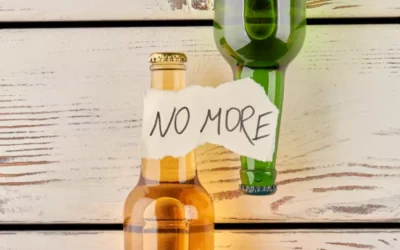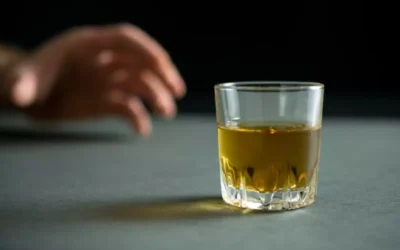A person’s environment includes various influences, such as family, friends, and economic status. This final stage circles back to the intoxication stage once a person uses drugs again. When a person experiences withdrawal, the reward system in the basal ganglia shuts off. Withdrawal from different categories of drugs — such as depressants, stimulants or opioids — produces different side effects and requires different approaches.
- Understanding the stages can help you determine your progress and what to expect regarding challenges and successes.
- The timeframe will depend on the patient’s readiness to commit, the substance they’ve been abusing, and any existing mental health concerns.
- Recovering from prescription pill addiction can present unique challenges, but whether it is more difficult than recovering from illegal drug addiction depends on various factors.
- Substance use disorders are often relapsing, meaning that recovery will often entail setbacks.
Drug addiction (substance use disorder)
You may also find support groups in your community or on the internet. While naloxone has been on the market for years, a nasal spray (Narcan, Kloxxado) and an injectable form are now available, though they can be very expensive. Whatever the method of delivery, seek immediate medical care after using naloxone. In an opioid overdose, a medicine called naloxone can be given by emergency responders, or in some states, by anyone who witnesses an overdose.
Medicine as part of treatment
Recovery is a process of change through which people improve their health and wellness, live self-directed lives, and strive to reach their full potential. Even people with severe and chronic substance use disorders can, with help, overcome their illness and regain health and social function. Being in recovery is when those positive changes and values become part of a voluntarily adopted lifestyle. Research and clinical experience have identified a number of factors that promote recovery. Another is reorienting the brain circuitry of desire—finding or rediscovering a passion or pursuit that gives meaning to life and furnishes personal goals that are capable of supplanting the desire for drugs.
Stage 6: Relapse
- Contact us to find out how you can begin the stages of recovery and quit substance abuse.
- Avenues Recovery is a community-based drug and alcohol rehabilitation center with locations across the United States.
- It gets in the way of recovery, self-acceptance, and accessing help when needed.
Detoxification is the initial step in addiction treatment, focusing on eliminating substances from the body in a safe and controlled environment. Medication-Assisted Therapy (MAT) is often employed to ease withdrawal symptoms and cravings, incorporating medications like methadone, buprenorphine, or naltrexone. The goal of MAT is to provide a stable platform for individuals to engage in the behavioral components of recovery. Although there’s no cure for drug addiction, treatment options can help you overcome an addiction and stay drug-free. Your treatment depends on the drug used and any related medical or mental health disorders you may have. In most cases, the journey to recovery starts by being open to change.
Inside the Taylor-Swift-themed virtual addiction recovery group, Swift Steps – The Philadelphia Inquirer
Inside the Taylor-Swift-themed virtual addiction recovery group, Swift Steps.
Posted: Sat, 27 Apr 2024 07:00:00 GMT [source]
Or perhaps they are too dependent on the drugs and therefore are not ready to change their lives. They may be very defensive regarding their use of drugs and they may continuously justify their behavior to their loved ones. In reality, the outcome of the process of change is highly individual.
Alcoholism Recovery Timeline: What Happens When You Quit Drinking?
All these chemical influences in the brain can generate irritability at random moments for no apparent psychological reason. When confronted about their irritability, they tend to blame others, or stress, or traffic jams—whatever is at hand and may contain a grain of truth. Or they will deny being irritable, drink or drug some more, and avoid looking at their behavior. As soon as exercising stops, your strength and flexibility begin fading. Many support groups follow the 12-step model first developed by Alcoholics Anonymous.
How Can the Stages Improve Treatment Outcomes?

These medicines can reduce your drug cravings and can help you avoid relapse. After discussion with you, your health care provider may recommend medicine as part of your treatment for opioid addiction. Medicines don’t cure your opioid addiction, but they can help in your recovery. These medicines can reduce your craving for opioids and may help you avoid relapse. Medicine treatment options for opioid addiction may include buprenorphine, methadone, naltrexone, and a combination of buprenorphine and naloxone. Diagnosing drug addiction (substance use disorder) requires a thorough evaluation and often includes an assessment by a psychiatrist, a psychologist, or a licensed alcohol and drug counselor.
Find Support
When you decide to enter a professional alcohol and drug treatment program, you will begin a journey through four distinct stages of rehab recovery as you learn to develop a healthy and sober lifestyle. Taking action is a very important step in the substance abuse recovery process, and it is one in which it’s important drug addiction recovery to have support as you make changes. It can feel stressful to change, which is why the support a person receives in drug and alcohol treatment can be so important in continuing the process of addiction recovery. People in late-stage recovery may experience complex emotional states that can lead to relapse.



About The Author
module